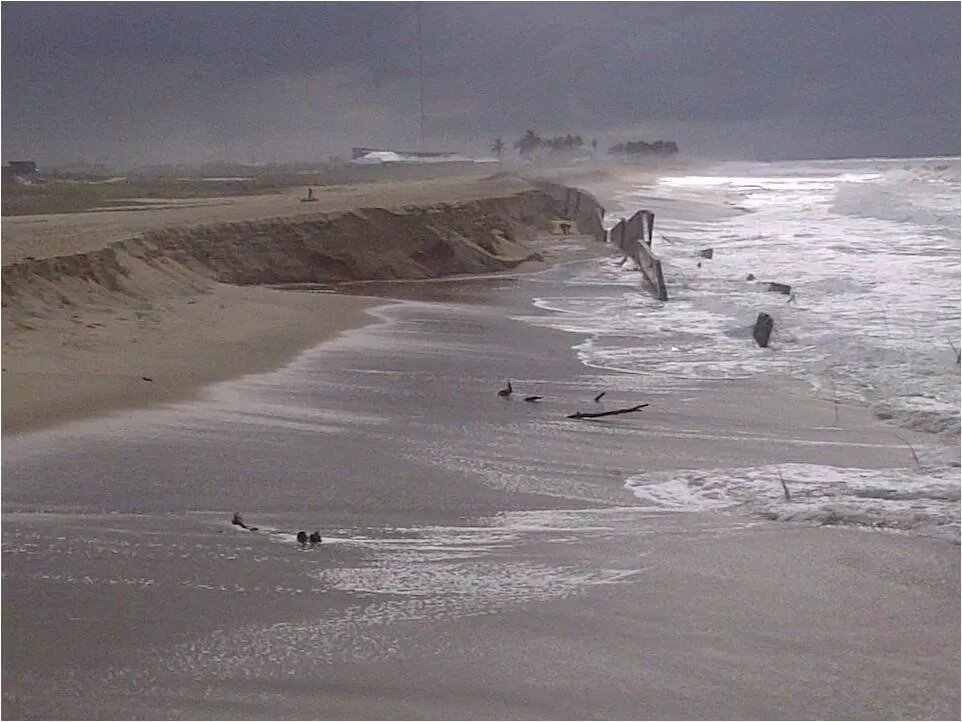
Click here for full report
Lagos State being a rapidly growing urban as well as coastal area is highly susceptible to the effects of climate change like increased flooding in its low-lying settlements or ocean surges along the coast. These effects have implications that span every major social, economic and environmental sector. During its 4th Climate Change Summit in April 2012, the Lagos State Government presented its draft climate change policy as well as a roadmap “Towards a Lagos State Climate Change Adaptation Strategy”.
In Nigeria, the few strategies for climate change adaptation and mitigation that have been initiated are at the federal and state government levels. But in order to achieve the stated goals of planning, development and disaster risk management, while at the same time strengthening institutions and building capacity to foster sustainable development, it is important to reach the people at the grassroots level. Given that the impacts will be felt most acutely at the local level; there is a need for locally based strategies. Local governments should be in a stronger position to tailor climate change preparedness strategies to their specific circumstances. Proactive planning is more effective and less costly than responding reactively to climate change impacts. Community Conservation and Development Initiatives (CCDI) planned the Mobilizing Local Governments for Climate Action project in collaboration with hbs to identify the local priorities of three coastal local governments and to build their capacity to respond to the challenges of climate change. As a next step, policies and strategies for climate action were developed to draw up action plans suitable for the local context. The resulting report will be presented to all the local government chairpersons in Lagos State so that they can benefit from the experiences and conclusions. CCDI was asked to make the report available to those working on the draft climate change policy and adaptation strategy for Lagos State so that the role of local government in those documents can be properly incorporated. Apart from developing disaster management plans with the local governments, their citizens and the relevant agencies, the project now intends to start with small scale adaptation projects which can generate income and improve the livelihoods of unemployed youths. Such projects include horticulture, rainwater harvesting, locally based income generating waste management strategies (in cooperation with LAWMA), using wood efficient cook stoves and others.
Some key findings and recommendations from the project are:
- Local governments lack a clear vision on how to be climate resilient.
- Local governments need to conduct climate change vulnerability and risk assessments. Their administrative, financial and technical capacity to do this has to be improved.
- A bottom – up approach to developing solutions with and for the communities is key. The concerned citizens have to be part of the design, planning and implementation of the solutions.
- Communication channels between the state government, its parastatals and the local governments must be upgraded to improve the flow of information and overcome the disconnection between the different political levels.
- Financial support for climate action is essential and should be sought both locally and internationally, with adequate criteria for management and disbursement established.
Blogging for climate action
To increase grassroots participation, hbs organized a bloggers event specifically for the purpose of engaging young citizens on the ground who can report local events and occurrences online, with particular relevance to climate change impacts and actions. The participants, most of whom are established bloggers, were chosen from the three local governments selected for the Mobilizing Local Governments for Climate Action project. In order to hold the local government official more accountable and to ensure the implementation of the proposed projects, the young people from the communities will accompany the project and monitor project activities and other incidents relating to local climate change responses. The aim is to increase dialogue around climate change issues at local level and to monitor the performance of their local government representatives in this regard. The blogs may also serve as tools for mobilization, information dissemination and as early warning systems. A dedicated web platform has been set up for this purpose: www.facebook.com/sm4cc